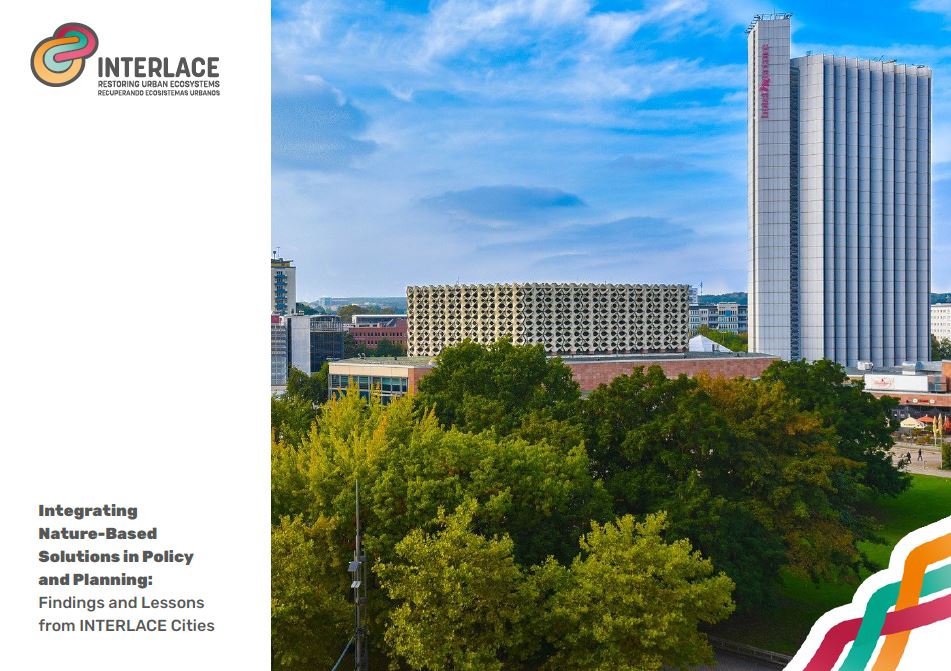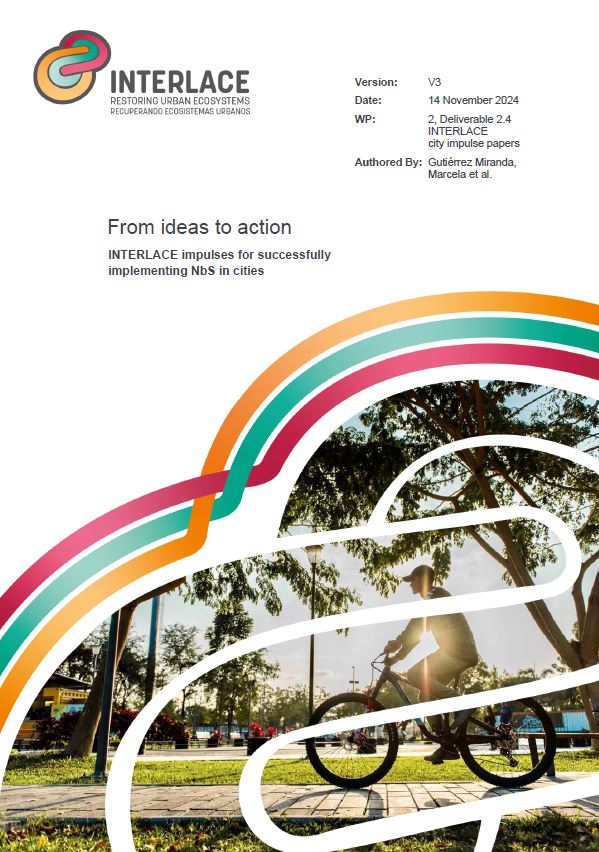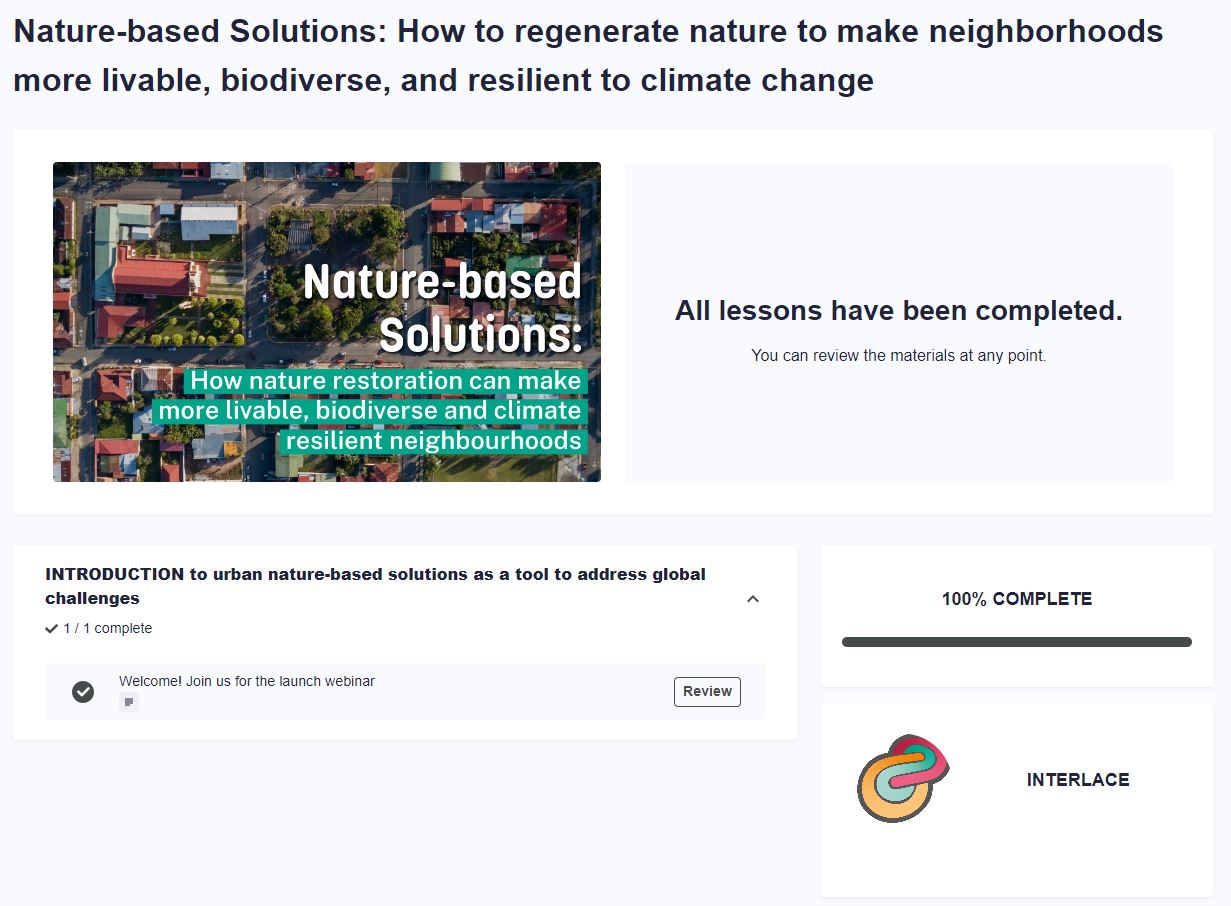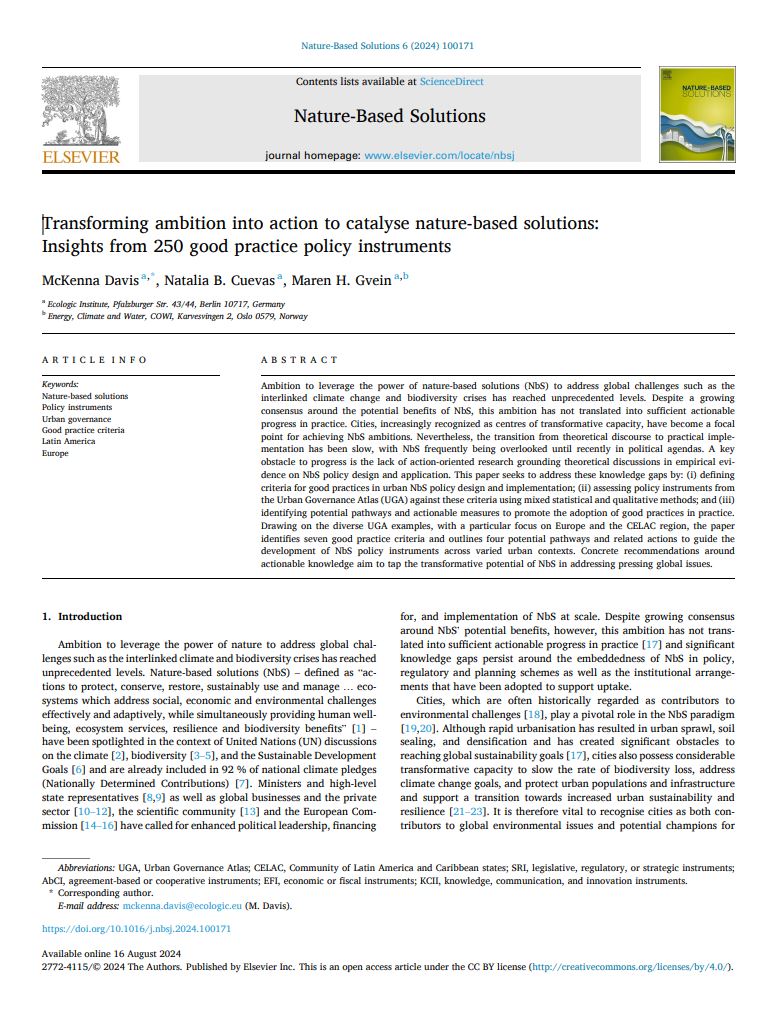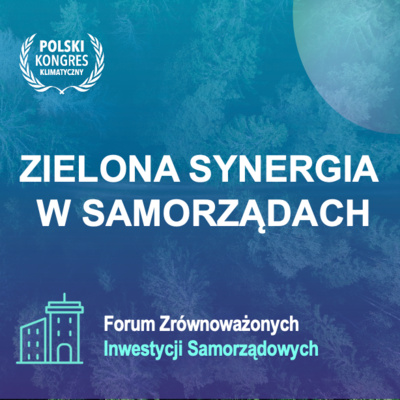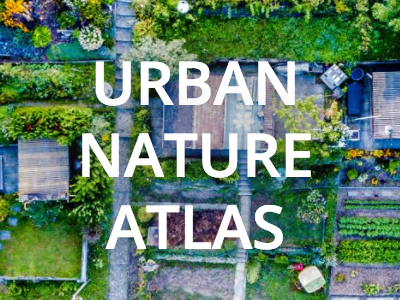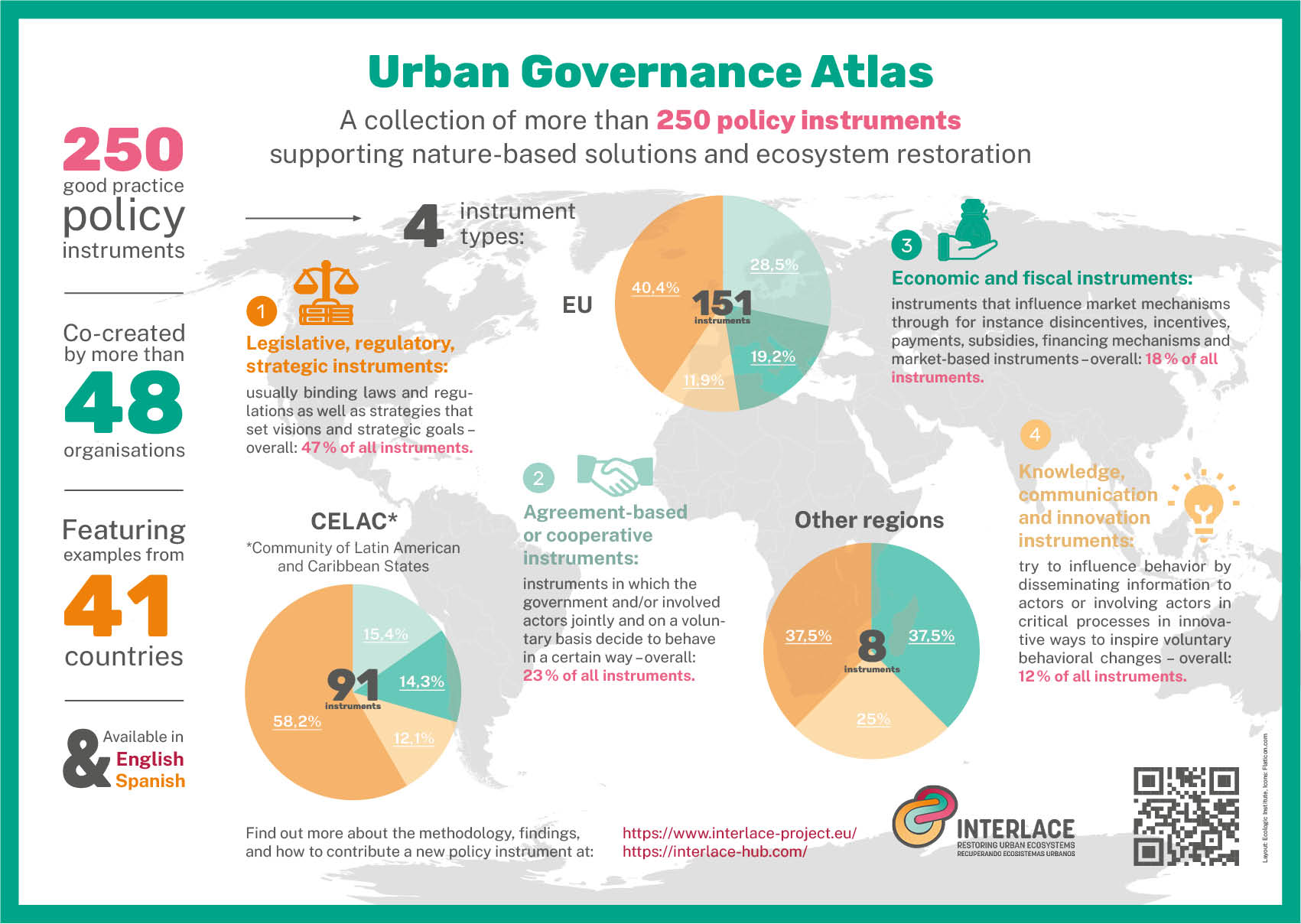Harnessing the Power of Collaboration for Nature-based Solutions
New ideas and insights for local decision-makers
- Publication
- Citation
European Commission, Directorate-General for Research and Innovation, Naumann, S., Burgos Cuevas, N., Davies, C., et al., Harnessing the power of collaboration for nature-based solutions : new ideas and insights for local decision-makers, Publications Office of the European Union, 2023, https://data.europa.eu/doi/10.2777/954370
Step into a realm of collaborative innovation with our insightful briefing paper, a product of the Nature Based Solutions Task Force 6 joint efforts. This paper focuses on co-creation for nature-based solutions, providing practical examples and guidance for local decision-makers. It sheds light on the effective utilization of co-governance approaches, encouraging participatory processes and collaborative creation in the realm of nature-based solutions.
Through the lens of real-world experiences, this paper explores how to harness the potential of these solutions from design to implementation and maintenance. It addresses institutional challenges that decision-makers often face when dealing with nature-based solutions, offering viable options for overcoming them. Drawing from city experiences, it highlights the value of co-governance, showcasing how inclusive governance approaches can transform cities and inspire others to follow suit.
Whether you're a decision-maker seeking pragmatic insights or simply intrigued by the possibilities of collaborative governance, this briefing paper offers a grounded perspective on co-creation for nature-based solutions.
- Language
-
English
- Authorship
-
Sandra NaumannClive DaviesSean BradleyIsraa H. MahmoudAlessandro Arlati
- Credits
Case study authors:
Chemnitz: Max Krombholz (City of Chemnitz), INTERLACE
CBIMA: Erica Calderon Jimenez (CBIMA), Marcela Gutiérrez Miranda (UNA), INTERLACE
Collserola: Eugenia Vidal Casanovas (Àrea Metropolitana de Barcelona), CLEARINGHOUSE
Hamburg: Alessandro Arlati (HafenCity Universität Hamburg), CLEVER Cities
Lima: Noemie Marinucci and Diletta Muccilli (European Urban Knowledge Network), CONEXUS
Sheffield: Noemi Marinucci (European Urban Knowledge Network), CONEXUS
Valencia: Gemma Garcia (Tecnalia) and Francisca Hipólito (Las Naves), GrowGreen
Wroclaw: Gemma Garcia (Tecnalia) and Małgorzata Bartyna-Zielińska (Wroclaw Municipality)Acknowledgement:
McKenna Davis (Ecologic Institute), Martin Grisel (European Urban Knowledge Network), Piret Noukas (European Research Executive Agency), Jonathan Hobbs (Newcastle University), Mari Carmen Garcia (MCG Research&Innovation Sustainability)
- Funding
-
European Commission, Directorate-General Research & Innovation (DG Research & Innovation), International - Published by
-
Publications Office of the European Union (Publications Office), International - Year
- Dimension
- 69 pp.
- ISBN
-
978-92-68-04522-0
- DOI
- Project
- Project ID
- Table of contents
-
Click to show full table of contents
1. Introduction
2. About this briefing paper
3. Understanding co-governance and co-creation for NBS
4. Existing and emerging governance models
5. Effective participation and co-creation
6. Enhancing policy and planning capacities for NBS implementation
Policy frameworks to support NBS
Co-governance to overcome institutional challenges
7. Recommendations and key take aways
8. References
Annex 1: Case studies
Case study 1: Providing Citizens with a Voice to Assist in the Designing of Public Intervention Sites in CHEMNITZ, Germany
Case study 2: The Collserola Natural Park: A Co-Governance Approach in Planning (PEPNat) in the BARCELONA METROPOLITAN AREA, Spain
Case study 3: Horizontal Governance in the Maria Aguilar Interurban Biological Corridor (CBIMA), GREATER METROPOLITAN AREA, Costa Rica
Case study 4: Co-build: movable multifunctional Nature-based Solutions (NBS) for educational purposes in the schoolyard in HAMBURG, Germany
Case study 5: Integrated and Multiscale Nature-Based Solutions to Tackle Social and Environmental Challenges in LIMA, Peru
Case study 6: Collaborative and partnership oriented NBS for the regeneration of waterways in SHEFFIELD, England
Case study 7: Collaborative actions for urban sustainability - connecting people with nature-based solutions (NBS) in Valencia, Spain
Case study 8: Co-creation and engaging citizens in NBS deployment in WROCLAW, Poland
Annex 2: Range of governance models and structures
- Keywords
-
social question, town planning and housing, ecology, green economy, living conditions, quality of life, quality of the environment, sustainable development, town, town planning, urban areaChemnitz, Germany, Collserola, Spain, Hamburg, Lima, Peru, Sheffield, United Kingdom, Valencia, Wroclaw, Poland, Europe, Latin America, Maria Aguilar Interurban Biological Corridor, CBIMA, Costa Ricacase study
Ecologic Institute 2018: Urban Nature Atlas – NATURVATION. URL: https://naturvation.eu/atlas
Nature Based Urban Innovation (NATURVATION)
- Duration
-
-
- Funding
-
European Commission, Directorate-General Research & Innovation (DG Research & Innovation), International
Enabling Green and Blue Infrastructure Potential in Complex Social-ecological Regions (ENABLE)
- Duration
-
-
- Funding
-
Federal Ministry of Education and Research (BMBF), Germany
Co-designing Locally-tailored Ecological Solutions for Value-added, Socially Inclusive Regeneration in Cities (CLEVER Cities)
- Duration
-
-
- Funding
-
European Commission, Directorate-General Research & Innovation (DG Research & Innovation), International
INTERLACE project consortium 2023: Urban Governance Atlas. Interactive database. Published on 11 May 2023. Online: https://interlace-hub.com/urban-governance-atlas.

